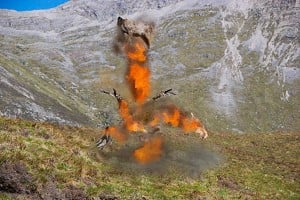
Do you actually know anything about the eco-policies of the outdoor companies that you buy from?
Many outdoor companies are making great strides to be environmentally friendly. Perhaps one of the founders of this movement is Yvon Chouinard's company, Patagonia.
Can we trust Yvon Chouinard? You decide.
He is a fellow climber but importantly Patagonia have led the way from making fleece jackets out of postconsumer recycled polyester (plastic bottles) to cofounding The Conservation Alliance. Patagonia's environmental efforts are legend. They've given away $30 million in environmental grants since 1985. This year they were awarded Eco Brand of the year at the ISPO outdoor trade show for their efforts to raise sustainability and environmental issues in their business and their efforts to influence other people and companies.
They admit they are not perfect but continue to lead an "examined life." One of their latest initiatives is called the Footprint Chronicles™ where you can track the impact of ten specific Patagonia products from design through delivery. Sometimes it isn't pretty!
They track where the material is made and under what conditions, how far the garment travels from source to manufacture to their Reno, Nevada warehouse; they measure carbon dioxide emissions, how much waste is generated making a garment and how much energy is used. Patagonia aren't shy about full disclosure of where their products are made.
Chouinard is skeptical of the buzzword "sustainable" and how it is bandied about so that it loses all meaning, preferring the more realistic "to lighten our footprint and do less harm" whilst at the same time making the "best product."
Have a look yourself to see how they are doing at the Footprint Chronicles™
We are going to periodically report on this news page what we think is good environmental practice in the outdoor world, focussing on outdoor companies and their products and practices. These news items will be known as GREEN GEAR. We welcome your comments and suggestions in this dialogue.




Comments